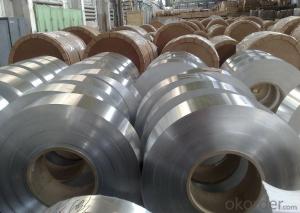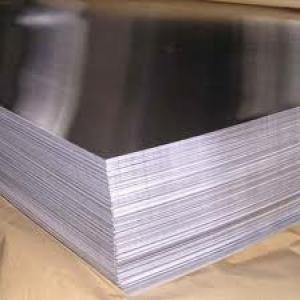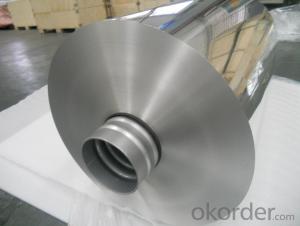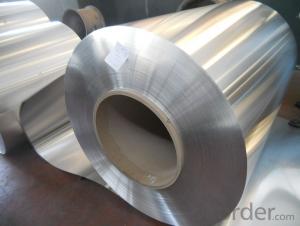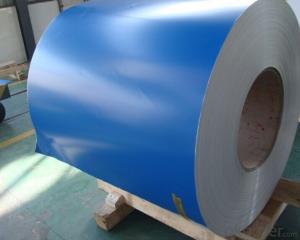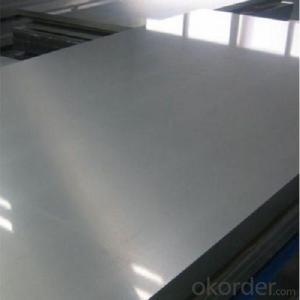Aluminum Strip for Transformer or Ceiling
- Loading Port:
- Shanghai
- Payment Terms:
- TT OR LC
- Min Order Qty:
- 5 m.t.
- Supply Capability:
- 5000 m.t./month
OKorder Service Pledge
OKorder Financial Service
You Might Also Like
l Product Introduction & Specification
| aluminum material | Aluminium Strip |
| available alloy | 5754 /3105 /5005 /3004 |
| application | Weather strip, car sealing weather stip, automative weather strip |
| surface treatment | with special adhesive coating for PP, PVC, TPE, EPDM, ABS material |
| thickness | 0.2-3.0mm |
| Flexibility (T-bend) | 0T-2T |
Chemical composition
EN-AW5754 | Si | Fe | Cu | Mn | Mg | Cr | Zn | Ti | remark | Others |
0.4 | 0.4 | 0.1 | 0.5 | 2.6-3.6 | 0.3 | 0.2 | 0.15 | 0.10-0.6Mn+Cr | 0.15 |
EN-AW5754 Mechanical property
Temper | Thick (mm) | Rm (Mpa) | Rp0.2 (MPA) | Elongation (A 50mm) | Bending
| Brinell hardness |
H22/H42 | 0.2-0.5mm | 220-270 | ≥130 | 7 | 1.5t(180°)&0.5t(90°) | 63 |
lPackaging & Delivery
Packaging detail: wooden cases that are suitable for long distance exporting
Delivery detail: 25-30 days after receiving L/C or payment in advance
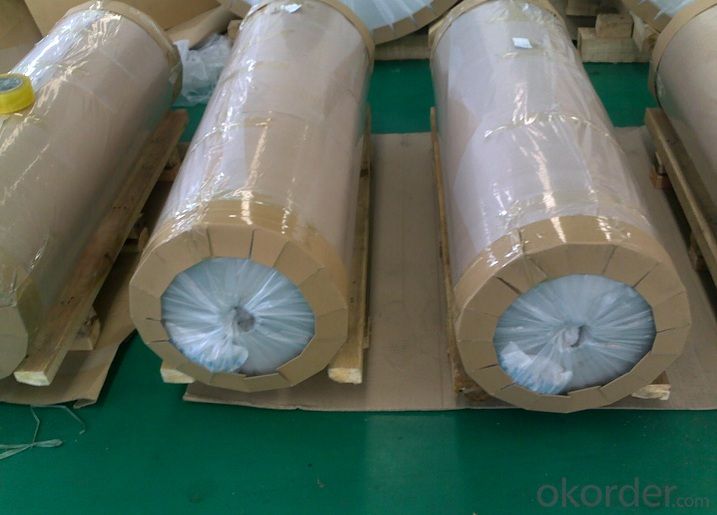
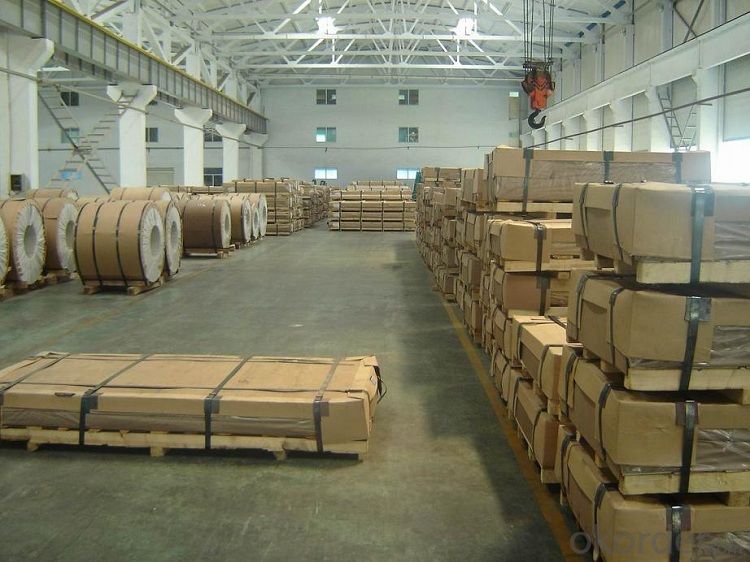
l Company Profile
CNBM International Corporation, China National Building Materials (Group) Corporation, is one of the largest companies in China building material & equipment industry, with 42,800 employees and sales in 2005 of US Dollar 4.395 billion. In 2006, China National Building Material Company Limited was listed on Hong Kong Stock Market with the stock code as 3323. |
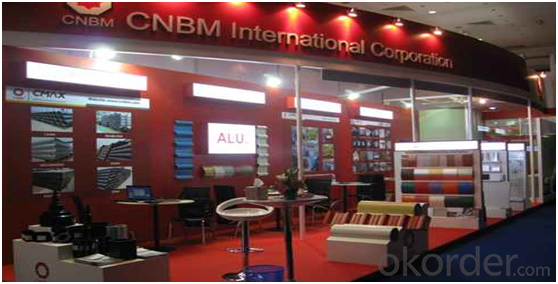
l CNBM World Wide
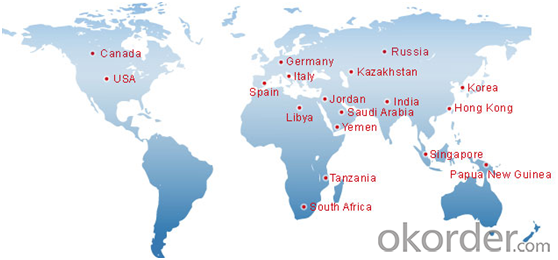
l Product Images
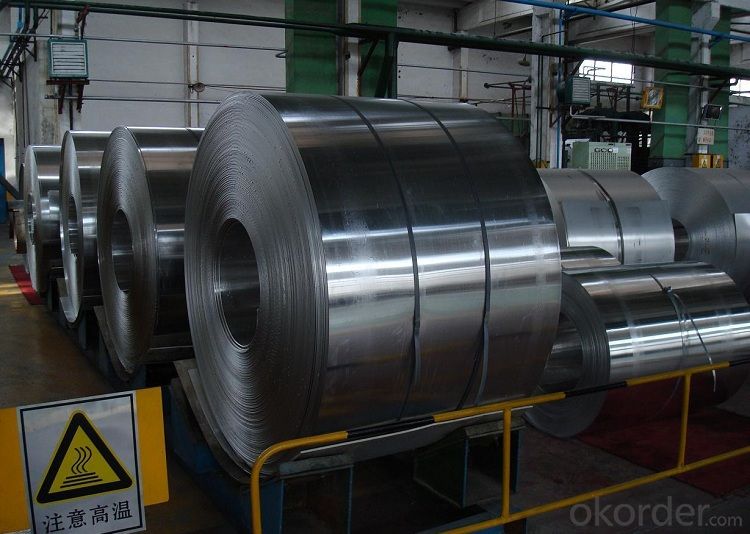
l Certificates
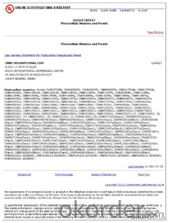
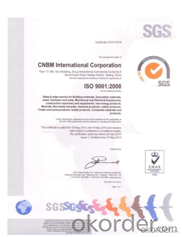
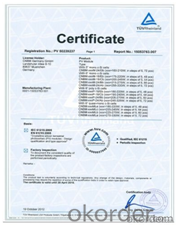
l FAQ
Q: Do you provide free samples?
A: Yes, free samples will be sent to you on freight at destination.
Q: Can I get your latest products catalogue?
A: Yes, it will be sent to you in no time.
Q: What is the MOQ?
A: 5 tons
Q: What are your payment terms?
A: We accept L/C, T/T.
l Contact Us
Email:service@okorder.com
- Q:How do i prepare the aluminium sheet to paint with oils on it?Do I have to buy special aluminium or any kind will work?
- Hi, okorder /
- Q:Can the aluminum sheets be used for packaging applications?
- Yes, aluminum sheets can be used for packaging applications. Aluminum is a versatile material that offers several benefits for packaging. It is lightweight, yet strong and durable, making it ideal for protecting and preserving various products, including food, beverages, pharmaceuticals, and cosmetics. Aluminum sheets can be easily formed into different shapes and sizes, allowing for customized packaging solutions. Additionally, aluminum has excellent barrier properties, providing a protective barrier against moisture, oxygen, light, and other contaminants, which helps to extend the shelf life of the packaged products. The material is also recyclable, making it an environmentally friendly choice for packaging applications. Overall, aluminum sheets are widely used in the packaging industry due to their versatility, strength, durability, barrier properties, and recyclability.
- Q:What is the typical modulus of elasticity of aluminum sheets?
- The modulus of elasticity of aluminum sheets typically varies based on the alloy and temper. Nevertheless, an often utilized figure is approximately 70 GPa (gigapascals) or 10 million psi (pounds per square inch). This figure denotes the material's stiffness or rigidity, revealing its capacity to endure deformation when subjected to stress. It is essential to acknowledge that diverse grades and conditions of aluminum might possess slightly distinct modulus of elasticity values. Hence, consulting the specific material specifications is advisable for precise information.
- Q:What are the advantages of using aluminum sheets in the packaging industry?
- There are several advantages of using aluminum sheets in the packaging industry. Firstly, aluminum is a lightweight material, making it ideal for packaging applications. It is significantly lighter than other packaging materials such as steel or glass, which makes it easier to handle and transport. The lightweight nature of aluminum sheets also helps reduce shipping costs, as less fuel is required to transport the packaging materials. Secondly, aluminum sheets offer excellent barrier properties. They provide an effective barrier against oxygen, moisture, and light, which are common elements that can deteriorate the quality and freshness of packaged products. This barrier helps extend the shelf life of the packaged goods, ensuring that they reach consumers in optimal condition. Additionally, aluminum sheets are highly durable and resistant to corrosion. This durability ensures that the packaged products remain protected, even in challenging environmental conditions. Aluminum sheets are also resistant to temperature variations, ensuring that the packaging material remains intact and does not warp or deform. Moreover, aluminum is a highly recyclable material. Using aluminum sheets in the packaging industry promotes sustainability and reduces the carbon footprint. Aluminum packaging can be easily recycled and reused, reducing the need for virgin materials and minimizing waste. Furthermore, aluminum sheets offer versatility in terms of design and customization. They can be easily formed and shaped into various packaging formats, such as cans, trays, foils, and pouches. This flexibility allows packaging manufacturers to create innovative and attractive packaging solutions that cater to the specific needs and preferences of different industries and consumers. Overall, the advantages of using aluminum sheets in the packaging industry include its lightweight nature, excellent barrier properties, durability, recyclability, and versatility. These benefits make aluminum sheets a preferred choice for packaging manufacturers, ensuring the protection, preservation, and appeal of packaged products.
- Q:what's the temperature tolerance of aluminum sheets?
- aluminum is a kind of silver white metal,melting point:660.4℃, boiling point: 2467℃,density: 2.70 g/cm?,very light, about 1/4 of iron's density.it has low hardness and good ductility, which makes it suitable for being pulled into threadlets or pressed into aluminum foils, and the later is usually used for packaging candy and cigarette. it has good electrical and temperature conductivity. it's used for the manufacture of electric wire and cable in electric power industry, and for the manufacture of cooker in daily life bined with the magnesium , copper,zinc,tin,manganese,chromium,zirconium,silicon and other elments,it can formulate various alloys that is broadly used for the manufacture of airplane,car,ship, materials of daily living equipment and the doors and windows of construction industry.aluminum is one of the best reflectors of heat and light, so it is used as thermal insulation material and the manufacture of reflecting mirror in the reflecting telescope.
- Q:Are aluminum sheets suitable for electrical applications?
- Yes, aluminum sheets are suitable for electrical applications. Aluminum is a highly conductive metal, and its use in electrical applications has become increasingly popular due to its numerous advantages. Firstly, aluminum is lightweight and offers excellent heat dissipation properties, making it an ideal choice for applications that require efficient thermal management. This is particularly important in electrical systems where heat can be generated, such as power transmission lines, electrical panels, and heat sinks. Secondly, aluminum sheets are highly corrosion-resistant. Unlike some other metals, aluminum forms a protective oxide layer on its surface, preventing further oxidation and corrosion. This makes it a reliable choice for electrical applications that are exposed to harsh environments or moisture. Additionally, aluminum is a cost-effective option compared to other metals commonly used in electrical applications, such as copper. It is readily available and has a lower price point, making it an attractive choice for manufacturers and consumers alike. However, it is important to note that aluminum has a lower electrical conductivity compared to copper. This means that for certain applications where high conductivity is crucial, such as in power transmission lines, copper may still be preferred. Nevertheless, advancements in technology and design have allowed aluminum to be used effectively in a wide range of electrical applications, from wiring and connectors to bus bars and transformers. In conclusion, aluminum sheets are indeed suitable for electrical applications, offering benefits such as lightweight construction, excellent thermal management, corrosion resistance, and cost-effectiveness. The final decision on whether to use aluminum or another material ultimately depends on the specific requirements and constraints of the electrical application in question.
- Q:Can aluminum sheets be bent into complex shapes?
- Yes, aluminum sheets can be bent into complex shapes. Aluminum is a highly malleable and ductile metal, which means it can be easily shaped and formed without breaking or cracking. This makes it ideal for creating intricate and complex shapes in various industries such as automotive, aerospace, construction, and more. The process of bending aluminum sheets into complex shapes typically involves using specialized equipment such as press brakes or rollers to apply force and form the desired shape. With the right techniques and equipment, aluminum sheets can be bent into curves, angles, and even intricate patterns with precision and accuracy.
- Q:Are aluminum sheets suitable for aviation applications?
- Yes, aluminum sheets are suitable for aviation applications. Aluminum is widely used in the aviation industry due to its lightweight, high strength-to-weight ratio, and corrosion resistance properties. It is used in the construction of aircrafts, including the fuselage, wings, and structural components. Aluminum sheets provide structural integrity, while also reducing the overall weight of the aircraft, which improves fuel efficiency and performance. Additionally, aluminum sheets can be easily formed and fabricated, making them versatile for various aviation applications.
- Q:Can aluminum sheets be used for pharmaceutical cleanrooms?
- Indeed, pharmaceutical cleanrooms can make effective use of aluminum sheets. Aluminum, known for its exceptional qualities, is a widely employed material in cleanroom construction. Its lightweight nature, durability, and resistance to corrosion make it ideal for establishing and maintaining a hygienic and uncontaminated environment. Within the cleanroom, aluminum sheets can serve various purposes including wall and ceiling panels, as well as other surfaces. These sheets are easy to clean and sanitize, guaranteeing a contamination-free pharmaceutical cleanroom. Furthermore, aluminum's non-porous nature prevents the growth of harmful bacteria and fungi. Consequently, aluminum sheets present a fitting choice for the construction of pharmaceutical cleanrooms.
- Q:Are 101 aluminum sheets suitable for automotive body panels?
- Certainly, automotive body panels can be made suitable by utilizing 101 aluminum sheets. This particular alloy, known as 101 aluminum, possesses remarkable attributes such as high strength, good formability, and corrosion resistance, rendering it an exceptional option for automotive purposes. Moreover, its lightweight composition aids in enhancing fuel efficiency and the overall performance of vehicles. Furthermore, 101 aluminum's impressive dent resistance ensures that body panels can endure impacts while preserving their structural integrity. All in all, opting for 101 aluminum sheets to create automotive body panels proves to be a pragmatic and efficient decision.
1. Manufacturer Overview |
|
|---|---|
| Location | |
| Year Established | |
| Annual Output Value | |
| Main Markets | |
| Company Certifications | |
2. Manufacturer Certificates |
|
|---|---|
| a) Certification Name | |
| Range | |
| Reference | |
| Validity Period | |
3. Manufacturer Capability |
|
|---|---|
| a)Trade Capacity | |
| Nearest Port | |
| Export Percentage | |
| No.of Employees in Trade Department | |
| Language Spoken: | |
| b)Factory Information | |
| Factory Size: | |
| No. of Production Lines | |
| Contract Manufacturing | |
| Product Price Range | |
Send your message to us
Aluminum Strip for Transformer or Ceiling
- Loading Port:
- Shanghai
- Payment Terms:
- TT OR LC
- Min Order Qty:
- 5 m.t.
- Supply Capability:
- 5000 m.t./month
OKorder Service Pledge
OKorder Financial Service
Similar products
New products
Hot products
Related keywords
